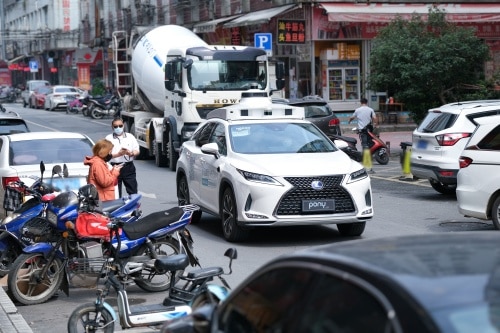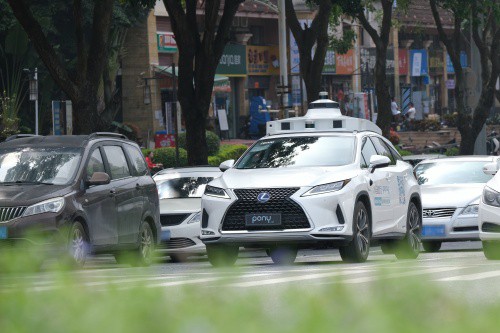Robotaxi startup Pony.ai was granted a license to operate 100 autonomous vehicles as traditional taxis in Nansha, Guangzhou. Scheduled to begin in May, the robotaxis will be plying the entire 800sqkm of Nansha, with plans to gradually expand the scope of service to other areas of Guangzhou.
Passengers can hail rides and pay for the service through the PonyPilot+ App. Operating from 8:30 am to 10:30pm, fares will be based on the standard taxi pricing in Guangzhou. Initially, Pony will have a safety driver at the wheel of its robotaxis, but the company expects to remove the driver over the short to intermediate time frame.
“Being China's first autonomous vehicle company to receive a taxi license is a testament to our technological strength and ability to operate robotaxi services. We will expand the scale of our services, provide quality travel experiences to the public in Guangzhou, create an industry benchmark for robotaxi services and continue to lead the commercialisation of robotaxis and robotrucks,” said James Peng, co-founder and CEO of Pony.ai.
The taxi license, issued by the Guangzhou government, marks the formal implementation of autonomous driving (AD) mobility services similar to traditional taxis and ride-hailing services.
While WeRide, one of Pony’s rivals in China, has been running a partnered service with Guangzhou’s government-backed taxi group Baiyun since 2019, this is said to be the first time China has rolled out a taxi license dedicated to an autonomous ride-hail fleet, without the need to partner up with a traditional taxi operator.

Commercialising robotaxi services
Guangzhou is the second Tier-1 city in China to grant a taxi license to the robotaxi startup, nearly five months after it receives its first taxi license in Beijing last November.
To qualify for the license, Pony had to pass stringent safety and other multifaceted vehicle qualification tests set forth by national inspection institutions, such as having at least 24 months of AD testing in China and/or other countries, at least 1 million kilometres of testing mileage, at least 200,000 kilometres of AD testing within Guangzhou’s designated test area, and no involvement in any active liability traffic accidents.
“The inclusion of autonomous vehicles in the unified and standardized management of taxis proves that both government policy and the public are increasingly accepting robotaxis as a form of everyday transportation, recognising the ride experience and technical stability of our robotaxi,” said Tiancheng Lou, co-founder and CTO of Pony.ai.
The company plans to expand its commercial robotaxi footprint to the other two Tier-1 cities in China next year and to more cities by the start of Pony’s mass commercialisation planned for 2024/2025. Pony.ai currently has autonomous vehicle testing and operations in all four of China’s Tier-1 cities and in California.
Since launching its mobile app in December 2018, Pony has continuously improved and upgraded all aspects of the consumer experience of robotaxi services.
As of mid-April 2022, Pony’s robotaxi service has completed more than 700,000 orders, with nearly 80% repeat users and 99% of the passengers giving positive comments after completing their trips - and a service satisfaction rating reaching 4.9 on a 5-point scale.



